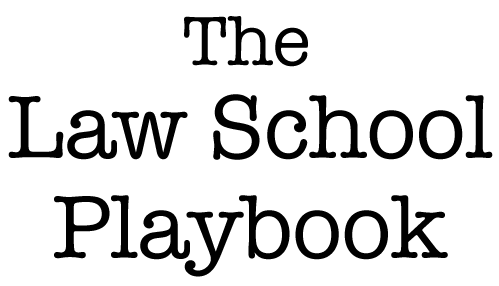Dear Student,
Welcome to The Law School Playbook! I’m Halle Hara, a professor of academic success and personal skills coach to law students and attorneys. I’m glad you’re here! My parents were avid golfers when I was a teen. Every so often I’d join them on the golf course, although I was pretty unskilled. I’d step up to the tee and the well-intentioned coaching from my parents inevitably followed: keep your head down, your arms straight, nice and easy, focus on the follow through, and so on. I remember being frustrated and thinking, “Should I juggle and spin plates on my head at the same time too?”
Now that I am a parent with teens of my own and also an academic coach, I try to be mindful about my advice. When it comes to case reading in law school, however, I sound like my parents. So far, I’ve come just a hair shy of begging you to do your reading for class as opposed to taking shortcuts. I’ve also told you to:
ditch your screen-reading habits to engage in critical thinking
find your inner purpose for inspired, active reading
read with energy to foster meaningful learning, making and revising predictions as you go
find your inner actor to role play as you read, bringing the text to life
read with your common sense, life experiences, and prior knowledge in mind
formulate opinions as you read, rather than accept the text as truth
engage in a dialogue with yourself as you read to create a deeper understanding
be mindful of time as you read, allocating a specific amount of time for your reading and use pre-reading strategies
find your inner artist to visualize what is being described in the text
And this doesn’t even capture all of the reading advice I have given you thus far. As common sense dictates, you have to adopt the strategies that work best for you. In other words, you should go ahead and swing, continuing to make adjustments as necessary.
But what happens if you follow at least some of this advice, actively engage with a complex case, and you still don’t know what to make of it? What then?
I want to be clear about this: re-reading is one of the single worst strategies to employ, particularly for law students with a limited amount of time. Chances are that, unless you are a brand new law student, if you welcomed the challenge of reading the case, endured the “desirable difficulty,” then continuing to look at the pages won’t illuminate any lightbulbs for you. As my artist husband says when referencing his childhood Etch-a-Sketch, “if it isn’t working for you, then pick it up and shake it.” Try another approach.
For example, you might:
visit your professor during office hours to seek clarification
contact fellow students to discuss the case and ask them to convey their understanding
use a reliable supplement to bolster your comprehension
I urge you to avoid re-reading as a study strategy. The detriment in terms of wasted time far outweighs any benefit.
Even if you understand the case you’ve read, it is important to continually gauge your understanding as you learn. Thus, you should engage in reflection after completing your reading to ensure that you gleaned what you were supposed to from the text. As any first-year law student can attest to, much of law school learning is sequential. It is difficult to understand damages before you understand liability, you wouldn’t study acceptance before you study an offer. As a self-regulated learner, it is important for you to identify and fill in gaps in your knowledge instead of forging ahead and thinking you’ll come back to it later. There is no later in law school, at least when it comes to your casebook. So put it all together and give it your best effort—your goals and your future are certainly worth it.
If would you like to read this episode, get suggestions for further reading, or to request individual coaching with me, please visit my website at www.lawschoolplaybook.com.
As always, do your best, and I’ll be rooting for you!
References and Further Reading
Elizabeth M. Bloom, Creating Desirable Difficulties: Strategies for Reshaping Teaching and Learning in the Law School Classroom, 95 U. Detroit Mercy L. Rev. 115 (2018).
Jane Bloom Grisé, Critical Reading for Success in Law School and Beyond 7–11, 22–25 (2017).
Ruth Ann McKinney, Reading Like a Lawyer: Time-Saving Strategies for Reading Law Like an Expert 51–55, 59–67, 71–78 (2d ed. 2012).
Michael Hunter Schwartz, Expert Learning for Law Students 33, 73–80, 85–87, 97–98 (2d ed. 2008).
Maryanne Wolf, Reader, Come Home: The Reading Brain in a Digital World 76–78 (2018).
